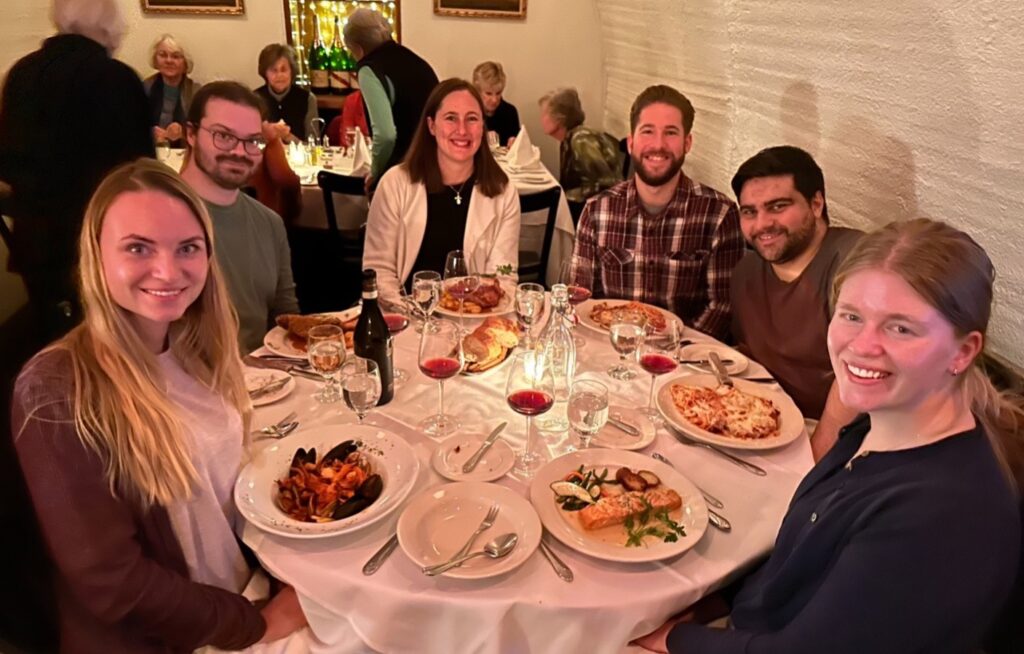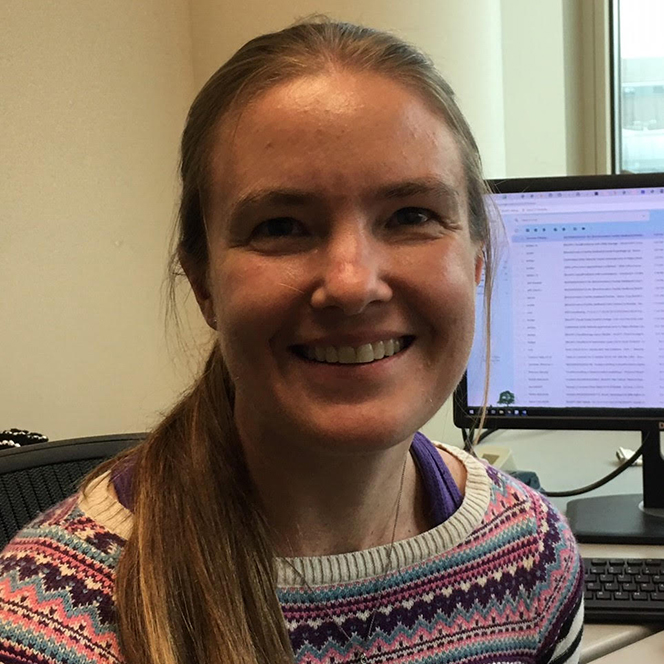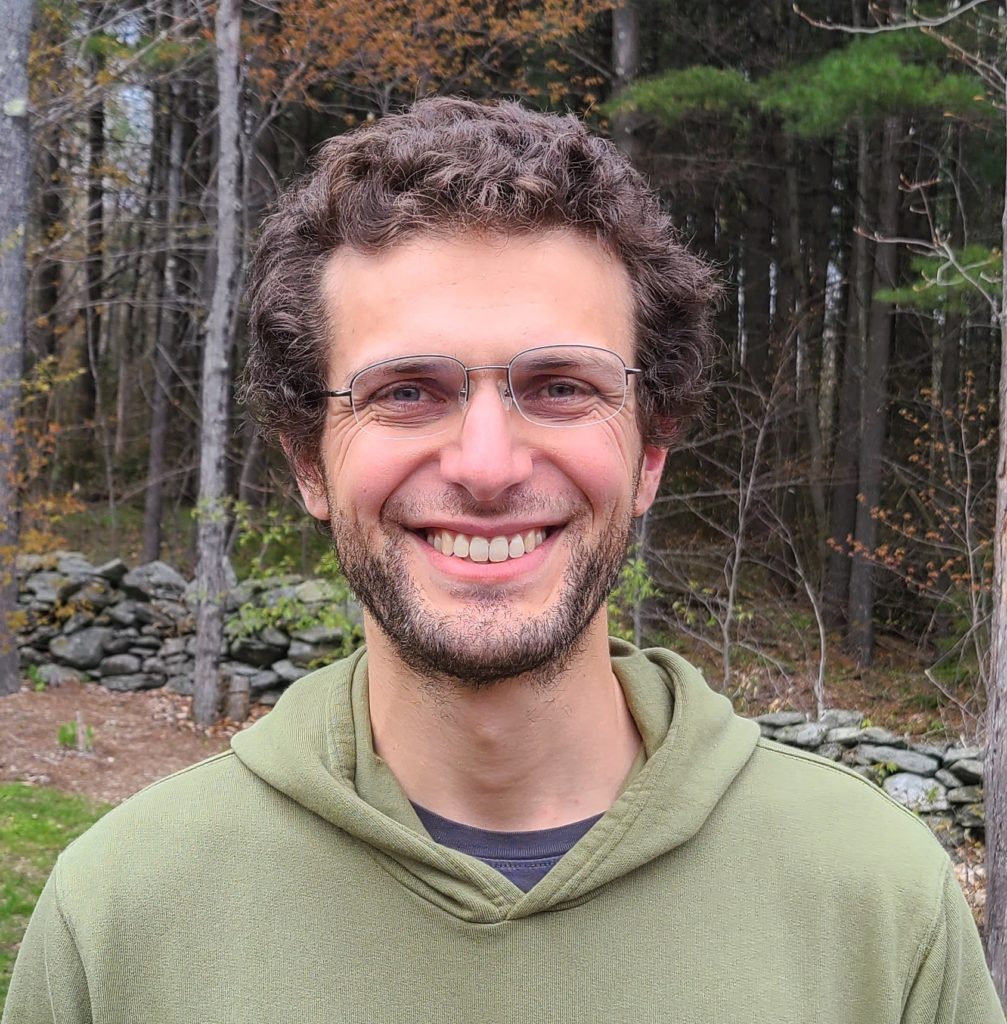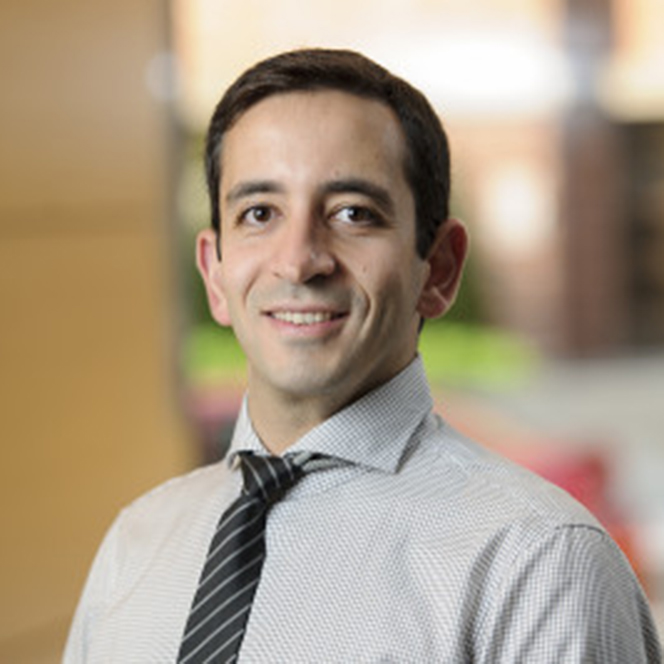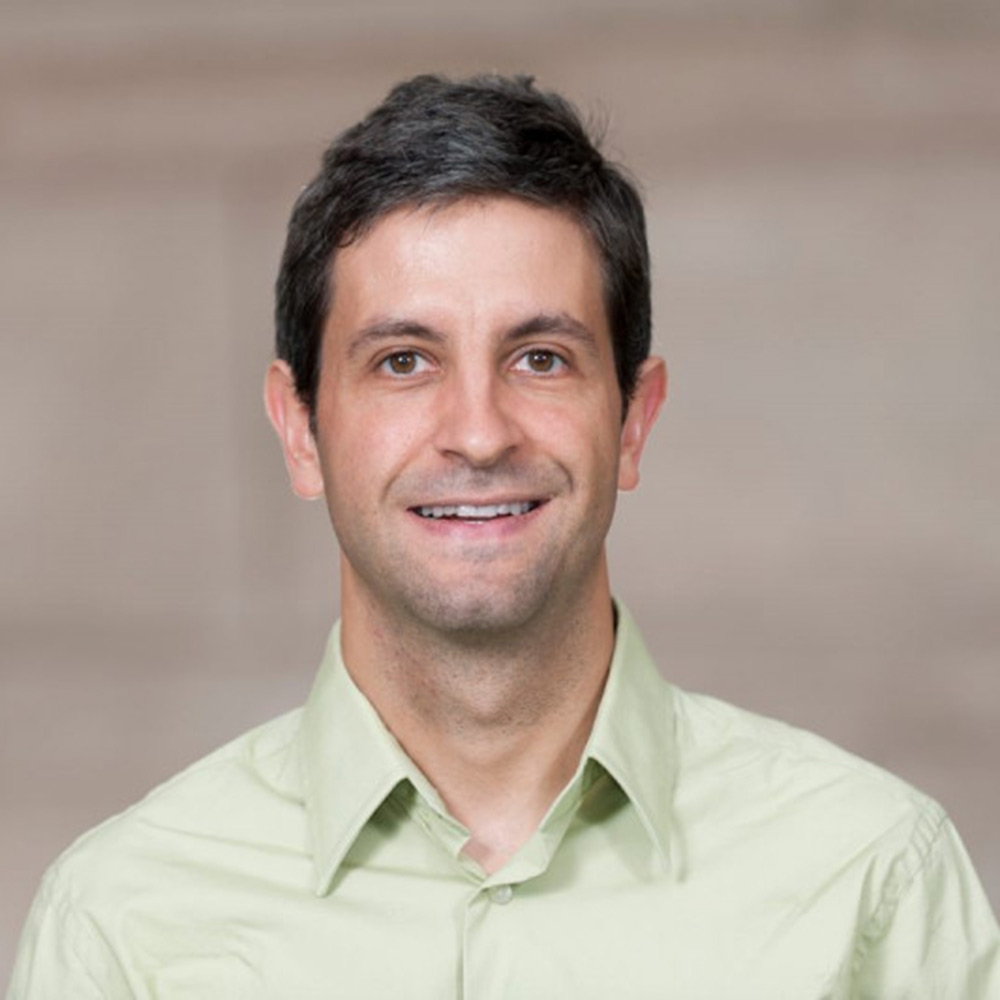THE TEAM
The Laughney Lab integrates powerful systems biology methods – including massively parallel, single cell sequencing and quantitative imaging technologies – with mouse models of metastasis and injury response to better understand the adaptive abilities of tumor cells and their interplay with anti-tumor immunity. We are affiliated with the Institute for Computational Biomedicine, the Department of Physiology, Biophysics and Systems Biology, the Department of Cell and Developmental Biology in the BCMB Allied Program, the Tri-Institutional PhD Program in Computational Biology and Medicine, and the Meyer Cancer Center at Weill Cornell Medicine.
Theresa Neal-Provenzano - Department Administrator
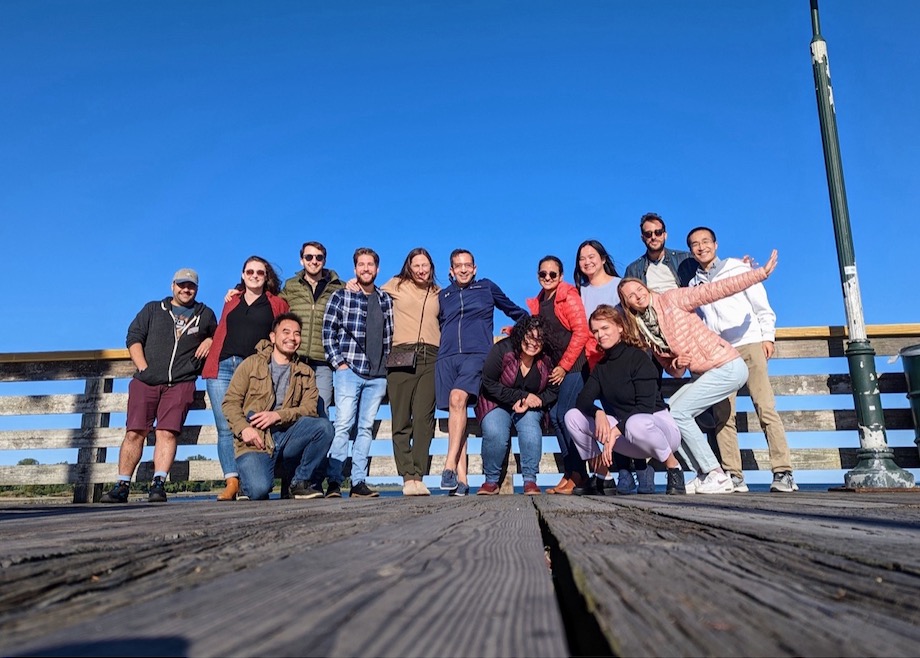
The Nucleus
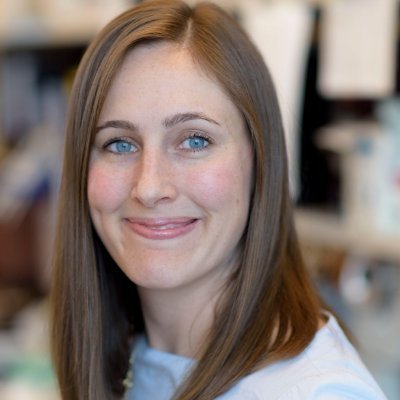
Ashley Laughney, PhD
Assistant Professor,
Institute for Computational Biomedicine
Department of Physiology and Biophysics
Weill Cornell Medicine
New York, NY
Initially trained as an engineer and in systems biology, Ashley developed functional spectroscopy (Dartmouth College) and single cell imaging and genomics methods in cancer biology (Harvard Medical School and Memorial Sloan Kettering) to quantify functional diversity in individual tumor cells. Combining high-throughput single cell transcriptional profiling with development of innovative computational tools and recruited expertise in synthetic biology, her laboratory aims to understand how the same protein can adapt multiple functions during an evolutionary, multi-cellular process like cancer progression. Metastasis requires diverse functions including dissemination, adaptation to a less hospitable microenvironment, immune evasion and regeneration.
Chromosomal instability (CIN) is a key driver of this transition through chronic sensing of genomic double-stranded DNA (dsDNA) in the cytosol (Bakhoum, Ngo, Laughney et al., Nature 2018). Recently, her lab has shown CIN-induced chronic STING signaling can be unleashed by loss of polycomb repressive complex 1 activity, enabling uveal melanoma metastasis (…Laughney, Nature Communications 2021). Now, Ashley and her team are developing powerful tools to systematically quantify CIN-dependent ligand effects on the tumor microenvironment, to identify cellular and tissue contexts that critically shape the functional output of multi-modal proteins at distinct stages of disease progression.
Affiliated Research Programs:
Tri-Institutional PhD Program in Computational Biology and Medicine
Physiology Biophysics and Systems Biology
Department of Cell and Developmental Biology
Cancer Genetics, Epigenetics and Systems Biology at Meyer Cancer Center
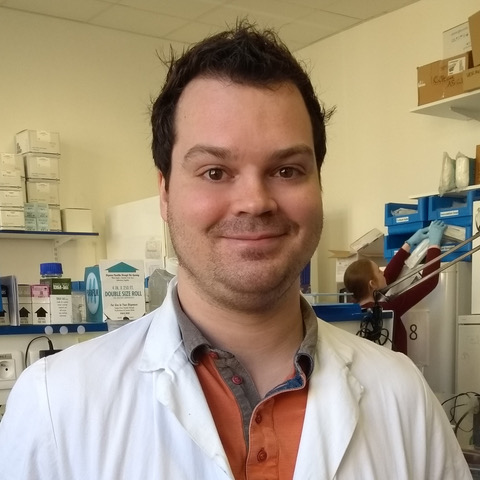
Mathew Deyell, PhD
Postdoctoral Fellow
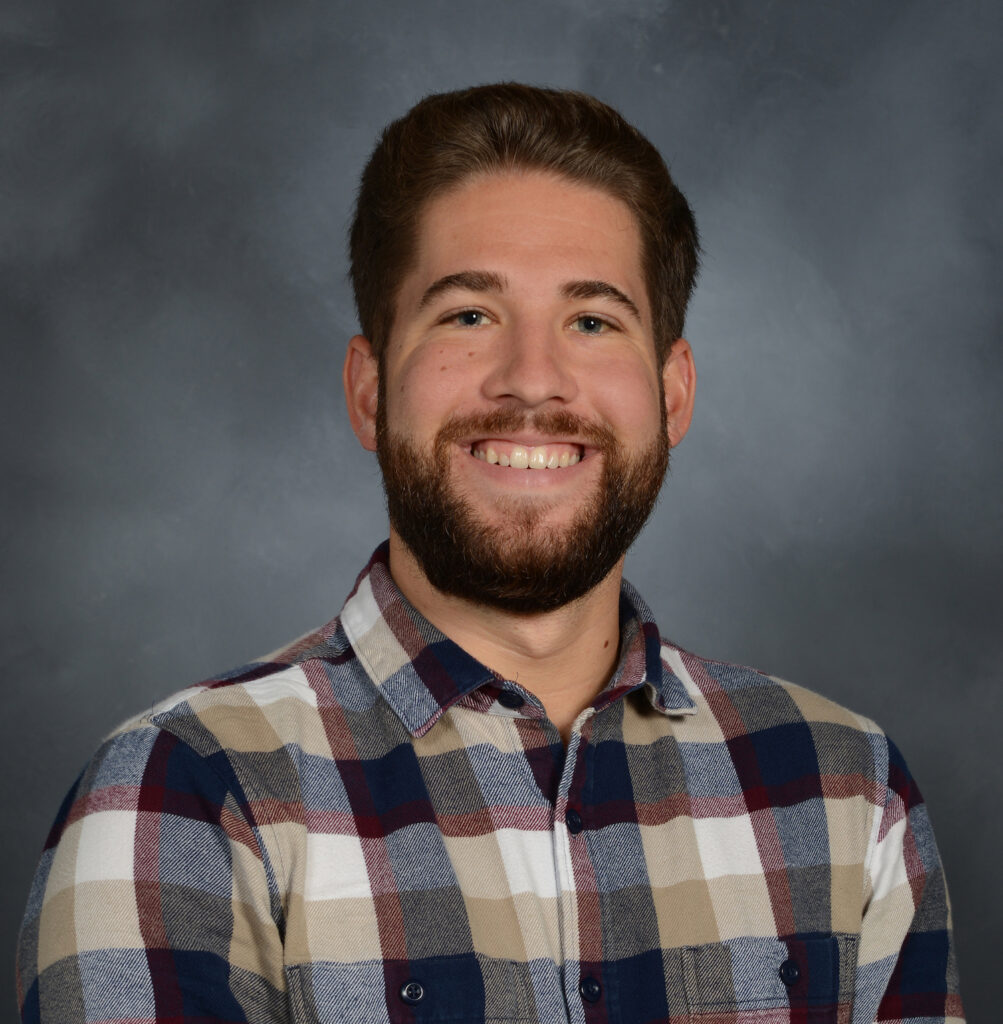
Ethan Earlie, MS
PhD Student
Tri-I Computational Biology & Medicine
Ethan received his M.S. in Computational Biology from Stony Brook University in 2020 after receiving his B.S. in Applied Mathematics and Statistics from Stony Brook in 2019. After which, he joined the lab as a computational research assistant working on single-cell genomics towards studying tumor heterogeneity and the immune landscape of the tumor microenvironment. As a PhD student, he is developing computational approaches to model tumor development and immune evasion in small cell lung cancer.
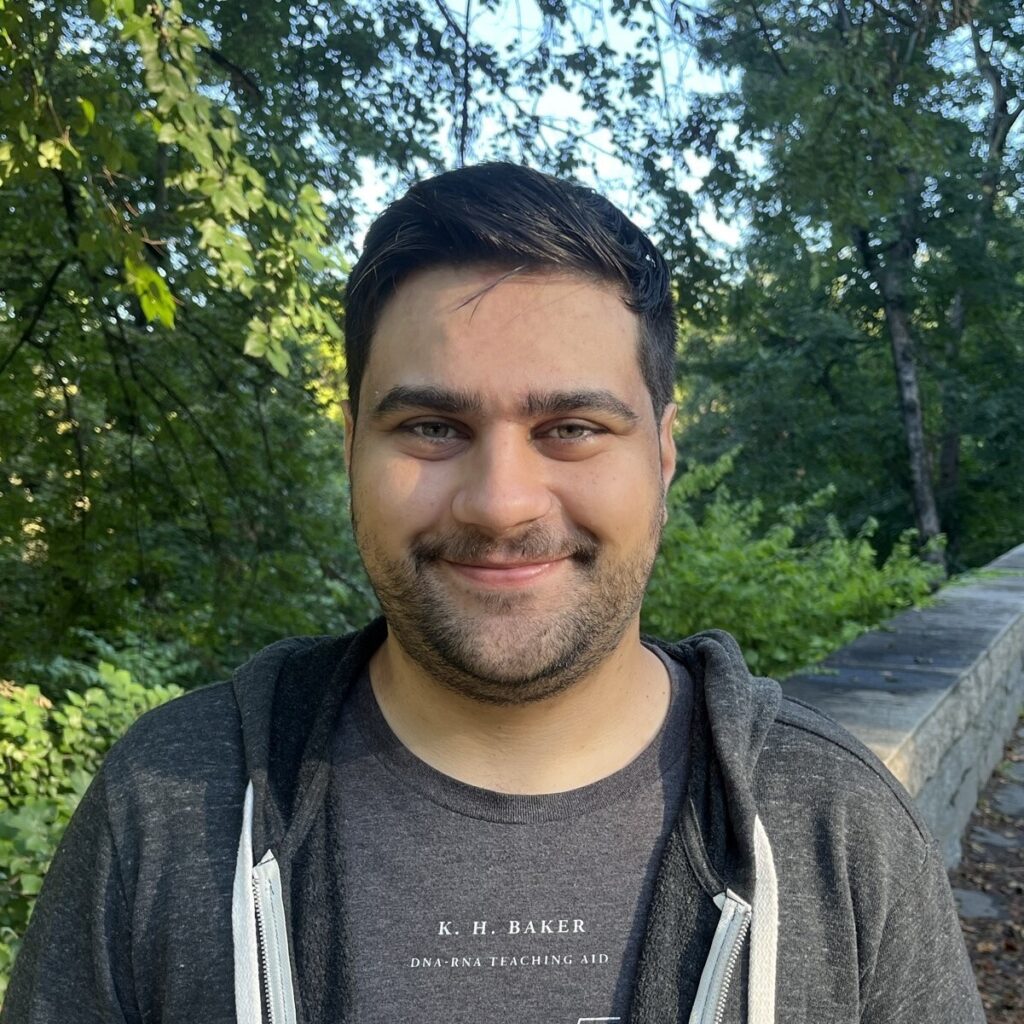
Austin Varela, BS, BA
PhD Student
Tri-I Computational Biology & Medicine
Austin received a B.S. in Computational Biology and a B.A. in Data Science from the University of Rochester in 2020. He applied novel computational techniques rooted in evolutionary biology to predict protein-protein interactions in the Werren Lab, for which he defended an original Honor’s research thesis. He then applied this work towards studying COVID-19 the subsequent year. He is currently pursuing an M.S. in Computational Biology and is interested in developing novel, data-driven methods for systems biology research with a specific interest in single-cell datasets.
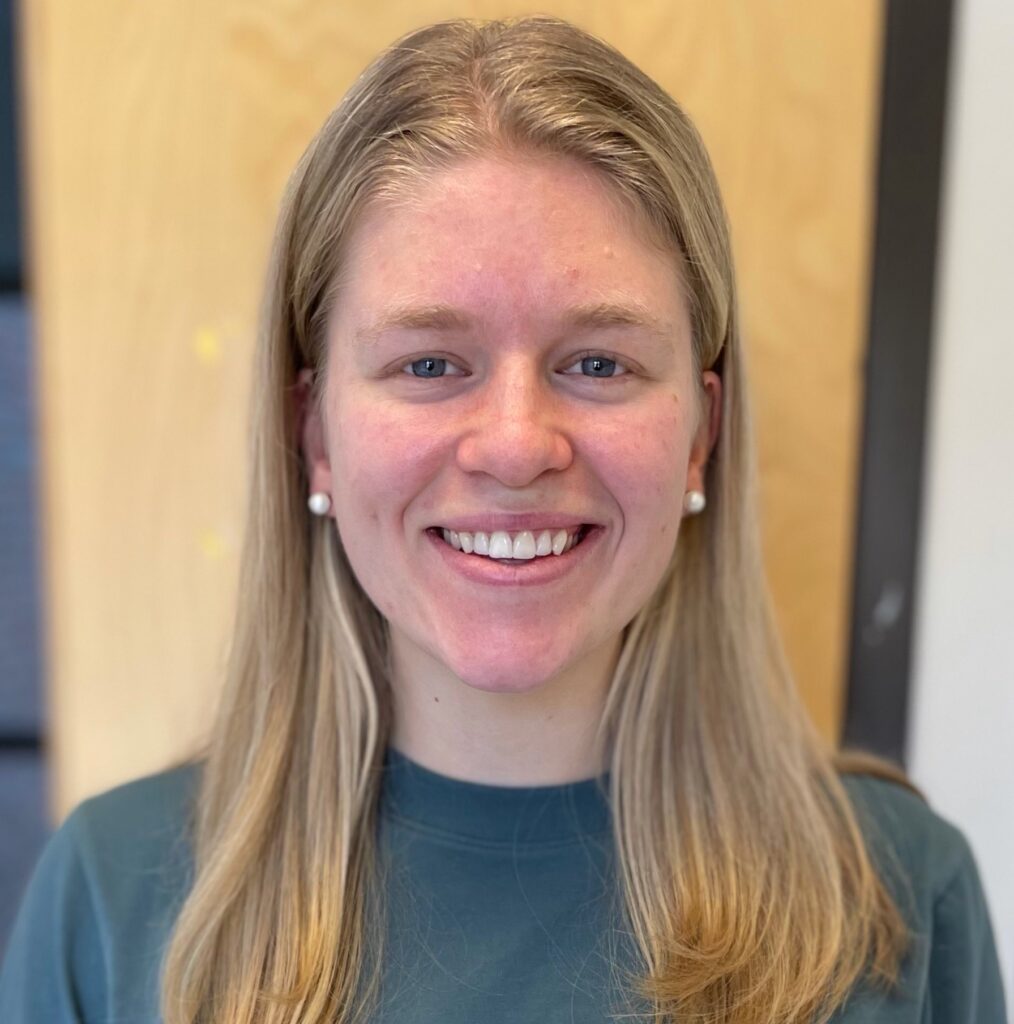
Amelia Ohnstad, BS
PhD Student
Weill Cornell BCMB Program
Amelia received her Bachelor of Science in Biochemistry and molecular biology from Carroll College in Helena, MT. She then worked for 2 years as a laboratory technician at Dartmouth College in the lab studying mechanisms of non-canonical autophagy. As a PhD student, Amelia is excited to understand how cell specific contexts give rise to emergent functions of proteins throughout cancer metastasis.

Rebecca Su, BA
PhD Student
Weill Cornell BCMB Program
Rebecca received her B.A. in Biochemistry and Molecular, Cellular, & Developmental Biology from the University of Colorado Boulder in 2021, during which she studied transposable elements. She then spent two years at the National Institutes of Health researching the ubiquitin-proteasome system in the context of viral infection and cancer. As a PhD student, she is working to understand mechanisms that contribute to resistant prostate cancer.

Sophia Howard, BA
Graduate Student
MS in Computational Biology
While completing her Bachelor’s Degree in Cell & Molecular Biology at Barnard College and working at early-stage biotechnology companies, Sophia became very interested in the intersection of biology and technology. Sophia is pursuing a Master’s Degree in Computational Biology to learn how to make better sense of biological systems and accelerate the development of alternative therapeutic approaches to improve patient care.

Ali Ambach, BA
Research Technician
Ali received her B.A. in Biology from the University of San Diego in 2023. During her undergraduate degree, she studied ion regulation physiology and mechanisms of salt regulation in the gill epithelial cells of freshwater fish. She joined the Laughney lab as a Research Technician in 2024.
Alumni
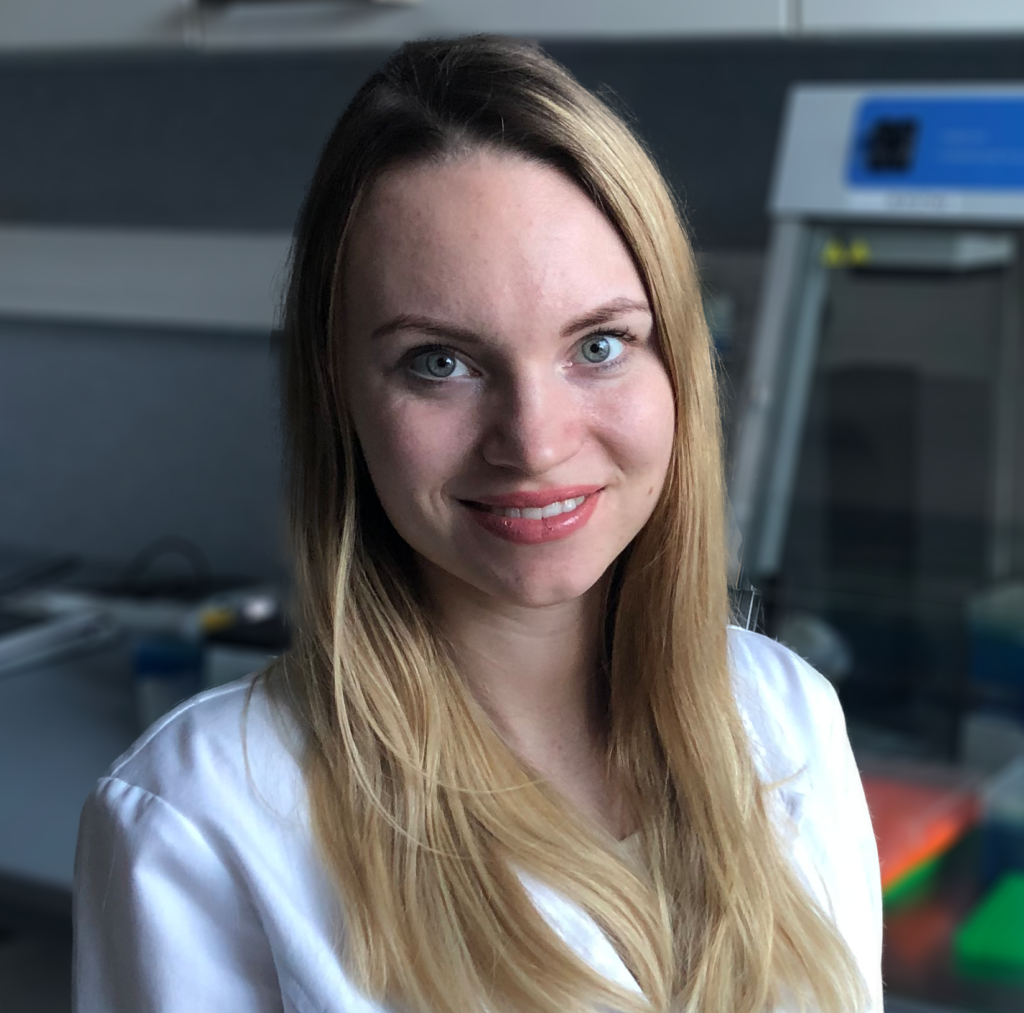
Karolina Budre, MS
Staff Associate
Karolina received her Bachelor of Science in Genetics and Master of Science in Molecular Biology from Vilnius University in 2019. During her bachelor studies she was an intern in Thermo Fisher Scientific, where her main focus was gene repression in E. coli using CRISPR technology. Her graduate work was done in the lab of Professor V. Siksnys, one of the pioneers of CRISPR-Cas research; it focused on characterization of novel CRISPR-Cas systems and their application in genome engineering. Karolina is now eager to translate her expertise in genome manipulations to better understand cancer metastasis and cellular responses to inflammation.
She is now a Senior Research Associate at Lighthouse Therapeutics
Noam Finkelstein, PhD
Postdoctoral Fellow
Noam completed his PhD in the Shpitser Lab at Johns Hopkins University, working on methods for reasoning about causality using biased data. He holds an MSE in computer science and an ScM in biostatistics from JHU, and a BA in politics, philosophy and economics from the University of Oxford.
He is now a Data Scientist at DELFINA.
Collaborators
Samuel Bakhoum, MD, PhD
Collaborator
Samuel is a Physician-Scientist and Assistant Member in the Human Oncology and Pathogenesis Program at Memorial Sloan Kettering Cancer Center. His lab studies chromosomal instability in tumor evolution and metastasis. Together with the Laughney lab, we explore cell type-specific inflammatory response programs and how they modulate crosstalk between the tumor and its microenvironment.
Xuelan Chen, PhD
Postdoctoral Fellow
Xuelan is a Postdoctoral Fellow in Samuel Bakhoum’s lab within the Human Oncology and Pathogenesis Program at Memorial Sloan Kettering Cancer Center. She received her PhD in Biotherapy for Major Human Diseases from Sichuan University in 2022 and a Bachelor of Science in Animal Science from Northwest A&F University in 2017. Her research focuses on epigenetic alterations associated with chromosomal instability. In collaboration with the Laughney lab, she investigates the impact of tumor-intrinsic chromosomal instability on the cancer ecosystem
Join The Team
Prospective candidates should email LaughneyLabPositions@gmail.com the following as a single PDF:
(1) a cover letter describing your current and future research interests,
(2) your CV, and (3) names and contact information for three references.
Graduate Students – Please contact Ashley directly to arrange a meeting to talk about the research in the lab. Ashley is happy to jointly advise students and is open to students from other departments.
Postdocs – Please additionally send up to two reprints and arrange for three letters of reference to be emailed directly to LaughneyLabPositions@gmail.com on your behalf. Postdoctoral applications will not be reviewed until all letters of reference are received.
We are open to applicants from a variety of backgrounds, including both theory and experiment.
